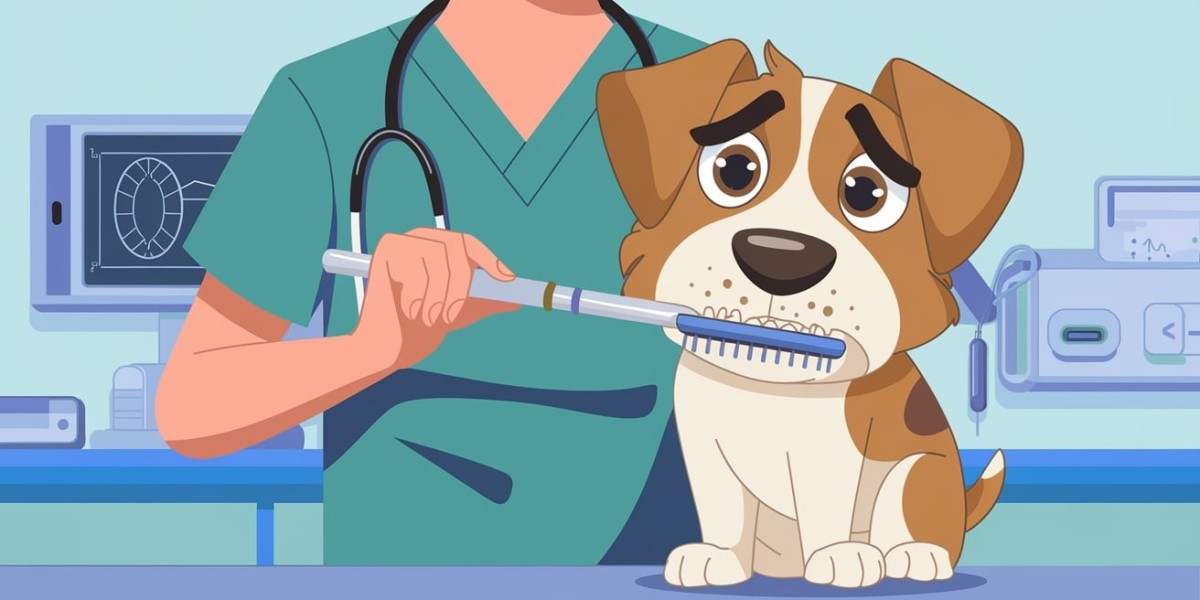Introduction
Why Canine Dental Health is Essential for Overall Well-Being
A dog's dental health is a critical component of its overall well-being. Poor oral hygiene can lead to gum disease, tooth decay, and even systemic infections affecting vital organs such as the heart and kidneys.
How Sensitive Teeth Can Impact a Dog's Comfort and Eating Habits
Dogs with sensitive teeth may experience discomfort while eating, leading to changes in appetite and difficulty chewing. Sensitivity can stem from worn enamel, gum disease, or dental fractures. If left untreated, this condition may result in avoidance of hard foods, increased drooling, pawing at the mouth, and general irritability.
The Role of Dental Sticks in Maintaining Oral Hygiene for Dogs
Dental sticks have become a popular solution for promoting canine oral health. Designed to reduce plaque and tartar build-up, they can help freshen breath and support gum health. However, for dogs with sensitive teeth, not all dental sticks are suitable, making it essential to select the right product.
Understanding Sensitive Teeth in Dogs
Common Causes of Tooth Sensitivity in Dogs
Tooth sensitivity in dogs can result from various factors, including:
Gum Disease: Inflammation and infection of the gums can expose tooth roots, causing pain.
Enamel Erosion: Loss of protective enamel makes teeth more vulnerable to sensitivity.
Tooth Fractures: Chipped or broken teeth can expose nerves, leading to discomfort.
Plaque and Tartar Build-Up: Accumulated bacteria can contribute to dental pain and gum irritation.
Signs and Symptoms of Dental Discomfort in Dogs
Pet owners should look for these warning signs of dental sensitivity:
Reluctance to eat hard kibble or chew toys
Drooling excessively
Pawing at the mouth
Bad breath (halitosis)
Whining when eating
Swollen or bleeding gums
How Vets Diagnose Sensitive Teeth and Underlying Dental Issues
Veterinarians typically diagnose dental sensitivity through:
Oral Examinations: Checking for inflamed gums, exposed roots, or damaged teeth.
Dental X-Rays: Identifying hidden issues such as fractures or infections.
Comprehensive Health Assessments: Evaluating overall oral health and potential underlying conditions.
The Role of Dental Sticks in Canine Oral Care
How Dental Sticks Work to Reduce Plaque and Tartar Build-Up
Dental sticks are designed with a textured surface that mechanically scrapes plaque and tartar off teeth. Some formulations contain enzymes and active ingredients that help break down bacterial deposits.
Are Dental Sticks Safe for All Dogs, Including Those with Sensitive Teeth?
Not all dental sticks are suitable for dogs with dental sensitivity. Some may be too hard, causing pain or worsening existing conditions. Choosing softer, specially formulated dental chews can help protect sensitive teeth while maintaining oral hygiene.
The Difference Between Regular Dental Sticks and Specialised Options for Sensitive Teeth
Standard dental sticks may be too abrasive, while those formulated for sensitive teeth often feature:
Softer textures for gentle chewing
Added enzymes to break down plaque without excessive force
Hypoallergenic ingredients to minimise irritation
Do Vets Recommend Dental Sticks for Dogs with Sensitive Teeth?
Veterinary Opinions on Using Dental Sticks for Sensitive Teeth
Many vets recommend dental sticks as part of a comprehensive oral care routine but advise caution for dogs with sensitivity. They often suggest softer alternatives that provide benefits without discomfort.
When Dental Sticks Are Beneficial and When They Should Be Avoided
Dental sticks can be helpful when chosen correctly, but they should be avoided if they cause:
Increased discomfort or refusal to chew
Bleeding gums or irritation
Allergic reactions to ingredients
Alternative Vet-Recommended Solutions for Dogs with Dental Sensitivity
Specialised dental diets
Regular tooth brushing with canine toothpaste
Dental water additives and gels
Choosing the Right Dental Stick for Dogs with Sensitive Teeth
Key Ingredients to Look for in Gentle and Effective Dental Sticks
Enzymatic cleaners for plaque control
Chamomile or aloe vera for soothing gums
Soft, chewable textures for easy chewing
Ingredients That May Cause Irritation or Worsen Sensitivity in Dogs
Artificial preservatives or colours
Excessively hard textures
High sugar content, which promotes bacterial growth
Best Vet-Recommended Dental Sticks for Dogs with Sensitive Teeth
Greenies Sensitive Formula
Oravet Dental Hygiene Chews
Whimzees Natural Dental Chews
Potential Risks and Downsides of Dental Sticks for Sensitive Teeth
Can Dental Sticks Cause More Harm Than Good for Sensitive Teeth?
If too hard, dental sticks can exacerbate pain and even cause tooth fractures. Choosing the right product is key.
Choking Hazards, Allergies, and Other Concerns Pet Owners Should Consider
Ensure the appropriate size for your dog's breed
Monitor for allergic reactions such as itching or swelling
Supervise chewing to prevent choking hazards
Signs That a Dental Stick is Not Suitable for Your Dog
Increased drooling or pain after chewing
Blood in saliva or on the chew
Refusal to eat after use
Alternative Dental Care Options for Dogs with Sensitive Teeth
Vet-Approved Dental Diets and Specially Formulated Dry Food
Some dry foods are designed with dental health in mind, using kibble textures that help reduce plaque without excessive hardness.
Brushing Techniques for Dogs with Sensitive Teeth
Using a soft-bristled brush and dog-friendly toothpaste can effectively maintain oral hygiene without causing discomfort.
Natural and Home Remedies to Support Canine Oral Health
Coconut oil for antibacterial benefits
Herbal mouth rinses with chamomile or calendula
Carrots or apples as natural teeth cleaners
How to Introduce Dental Sticks to a Dog with Sensitive Teeth
Gradual Introduction Methods to Prevent Discomfort or Rejection
Start with small pieces and monitor how your dog reacts before offering a full-sized chew.
Monitoring Your Dog’s Reaction to Dental Sticks
Observe chewing behaviour, looking for signs of pain or reluctance.
How Often Should Dogs with Sensitive Teeth Use Dental Sticks?
Vet recommendations typically suggest 2-3 times per week, depending on individual tolerance.
Vet-Recommended Best Practices for Maintaining Canine Oral Health
How Often Should You Schedule Professional Dental Cleanings?
Annual dental cleanings are ideal, though some dogs may need more frequent visits.
The Importance of Regular Dental Check-Ups for Early Detection of Issues
Routine vet check-ups help identify potential problems before they become serious.
Daily Habits to Promote Strong, Healthy Teeth in Dogs
Incorporate a combination of brushing, chews, and professional cleanings to maintain optimal dental health.
Conclusion
While dental sticks can be beneficial for many dogs, those with sensitive teeth require specialised options. Consulting with a vet ensures the right choice for your pet’s comfort and long-term oral health. By combining proper dental care strategies, pet owners can ensure their dogs enjoy a pain-free and healthy mouth throughout their lives.








